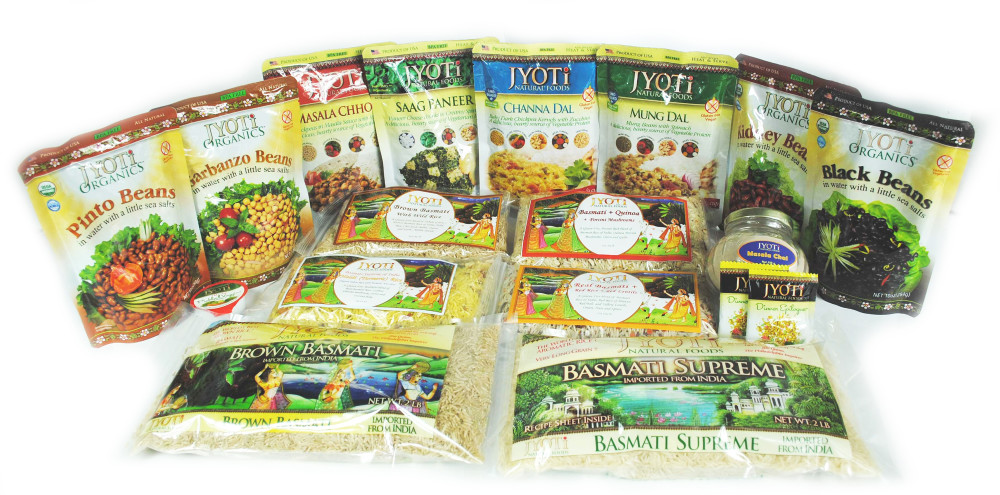By Dan Geringer
The Philadelphia Inquirer
WWR Article Summary (tl;dr) I love the story of immigrants Jyoti and Vijai Gupta, pioneers in Indian heat-and-eat canned foods. Their success within the food industry is admirable but what is even more impressive is the way they have treated their employees all of these years. Their compassion and kindness for their workers has inspired real loyalty among the staff. A great example of leadership for women in business everywhere.
PHILADELPHIA
Fourteen years ago, Seemab Fatima Shah, a Pakistani immigrant, found Kamaldeep Kaur, an Indian immigrant, sobbing in a Sikh temple they both attended in the Philadelphia area.
Shah asked what was wrong. Kaur replied that her husband, an alcoholic who physically abused her, was in jail. She had two young children, no money to feed them, and no job.
Shah took Kaur to her employers at Jyoti Natural Foods. Co-owners Jyoti and Vijai Gupta were pioneers in Indian heat-and-eat canned foods. Perhaps more important to Kaur, they were themselves immigrants.
“You come here,” Jyoti Gupta assured her. “No problem.”
Before Kaur’s husband died three years ago, the Guptas would drive her to domestic abuse counselors when she showed up for work with bruises.
Ask Kaur today how she feels about her longtime job at the Jyoti Natural Foods plant, and she smiles, walks over to 78-year-old Vijai Gupta, and gives him a big hug.
The Guptas have been earning hugs from their 40 employees, most of them Indian immigrants, for years because, he said, “If you see a drowning person, your instinct is to reach out and give him a helping hand. It comes natural to Jyoti and me. … Our workers look to us as their guardians, almost as foster parents. Are we looking for a payback? No. But their payback is their loyalty.”
In the high-turnover food industry, the Guptas have depended on that loyalty to expand the business they started in their kitchen in 1981 into a 50,000-square-foot plant that also produces thousands of airline meals and shelf-to-table pouched meals.
“Why not help somebody?” he said. He and his wife “have never even discussed the possibility of not helping somebody.”
Among Jyoti Natural Food’s core of decade-or-more workers is Nila Bernardo, a Filipino immigrant who had been unemployed because she had to be home after school to care for her deaf, mute and nearly blind son.
“We arranged for the bus to drop the little boy off at our factory after school,” Vijai Gupta said. “We set up a room for him here with all his playthings so his mother could work until six o’clock.”
The Guptas came to America separately from India in the 1960s, met, married and established careers, he as a research engineer, she as a food service director at a pair of hospitals. Along the way, 67-year-old Jyoti Gupta said, they noticed “there was no canned Indian food available that a person could take home and heat up and eat.”
They started canning Indian sauces, masala curry, rogan josh, saffron cream, and a few vegetarian dishes, which they sold mail order and in natural food stores. Because theirs was a mom-and-pop operation, the Guptas depended on canneries in New York and Louisiana, but neither facility had a washing technology that could remove all the small field stones from the beans that are a staple of Indian food.
When customers complained about stones in three truckloads of Jyoti chickpeas, Vijai Gupta said: “That almost broke us. Business came to a halt.”
The holder of more than 20 U.S. patents on technological inventions, he spent a couple of hours sketching a foolproof water-and-air bean cleaner, bought materials at Home Depot, and built a prototype.
“I am not a giver-upper,” he said. “I told my wife that I will build a factory … so she won’t have to depend on co-packers anymore. I built a 20,000-square-foot plant in 1997. My bean-washing technology was the heart of the plant.”
Their 42-year-old son, Anuj, said he’s awed by his father’s gift for invention. “In many cases, they couldn’t buy a machine to do what they needed,” he said, “so he would find the parts and tinker with them. … He’s a creative genius.”
In 2009, the Guptas opened a plant more than double the size of their first. Black lentils and dark red beans are washed for Jyoti’s Gupta’s canned heat-and-eat Dal Makhani; chickpeas for her Punjabi Chhole; and black beans, garbanzo beans, kidney beans, and pinto beans for heat-and-eat pouches.
His bean-and-grain cleaning technology is so efficient, Vijai Gupta said, that Hormel Foods is among its licensees.
“I’m 78 years old,” he said happily. “People ask me, ‘What is your secret?’ I tell them, ‘Eat like pig, drink like a fish, run like horse, and sleep like a hog.’ I play tennis six hours a week and go to the gym three times a week.”
And he keeps on inventing. “I have a patent pending on my new technology for cooking rice in shelf-stable packs,” he said. “A 200-convenience-store chain is buying rice and beans from us for their burritos. I challenge anyone to cook fresh rice and compare it to what comes out of our package.”
Vijai Gupta smiled a young man’s smile, put on a hairnet that all his workers wear and returned to the factory floor, scrutinizing the canning, imagining his next new thing to make it better.














































































































































































































































































































































































